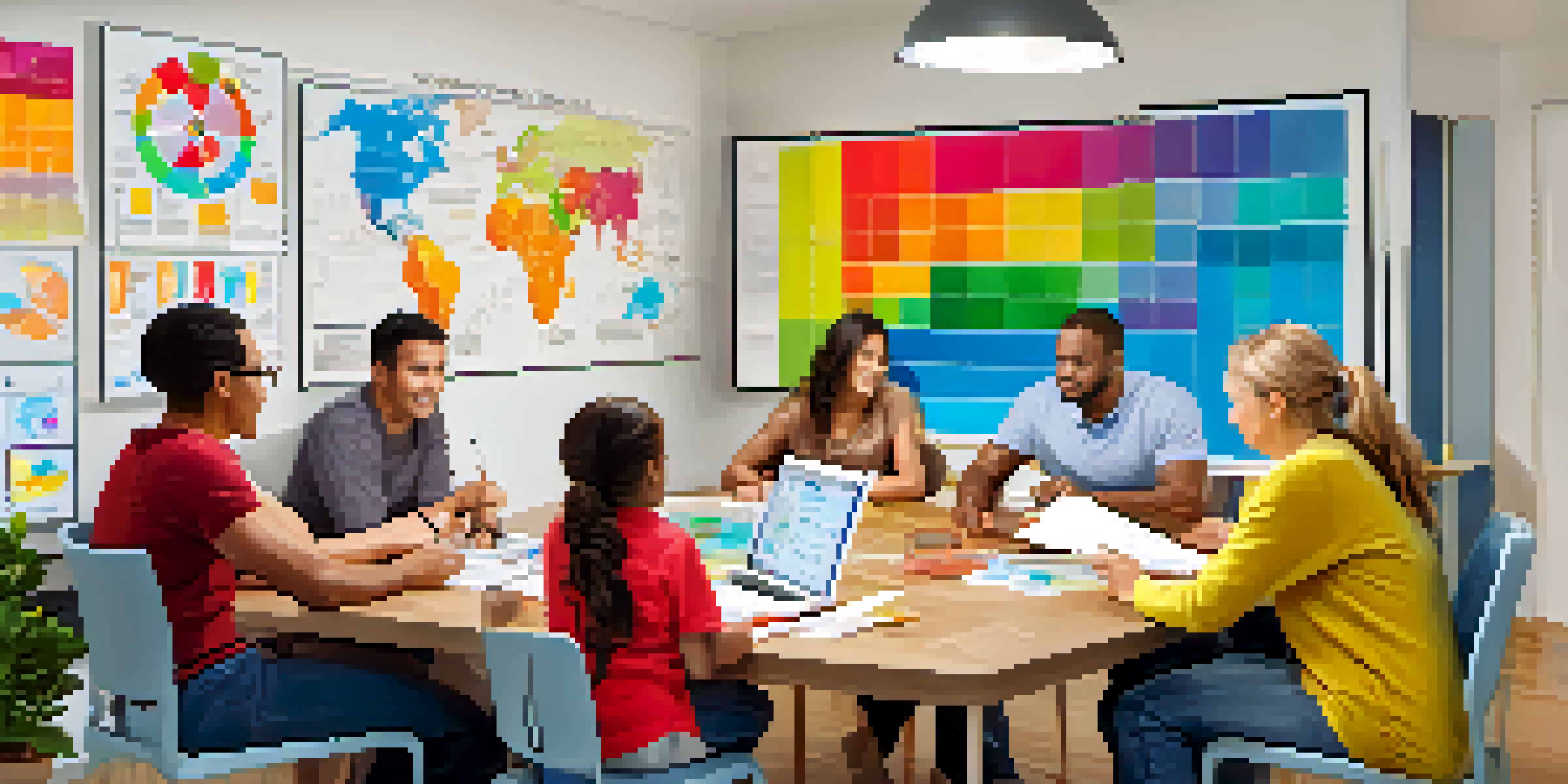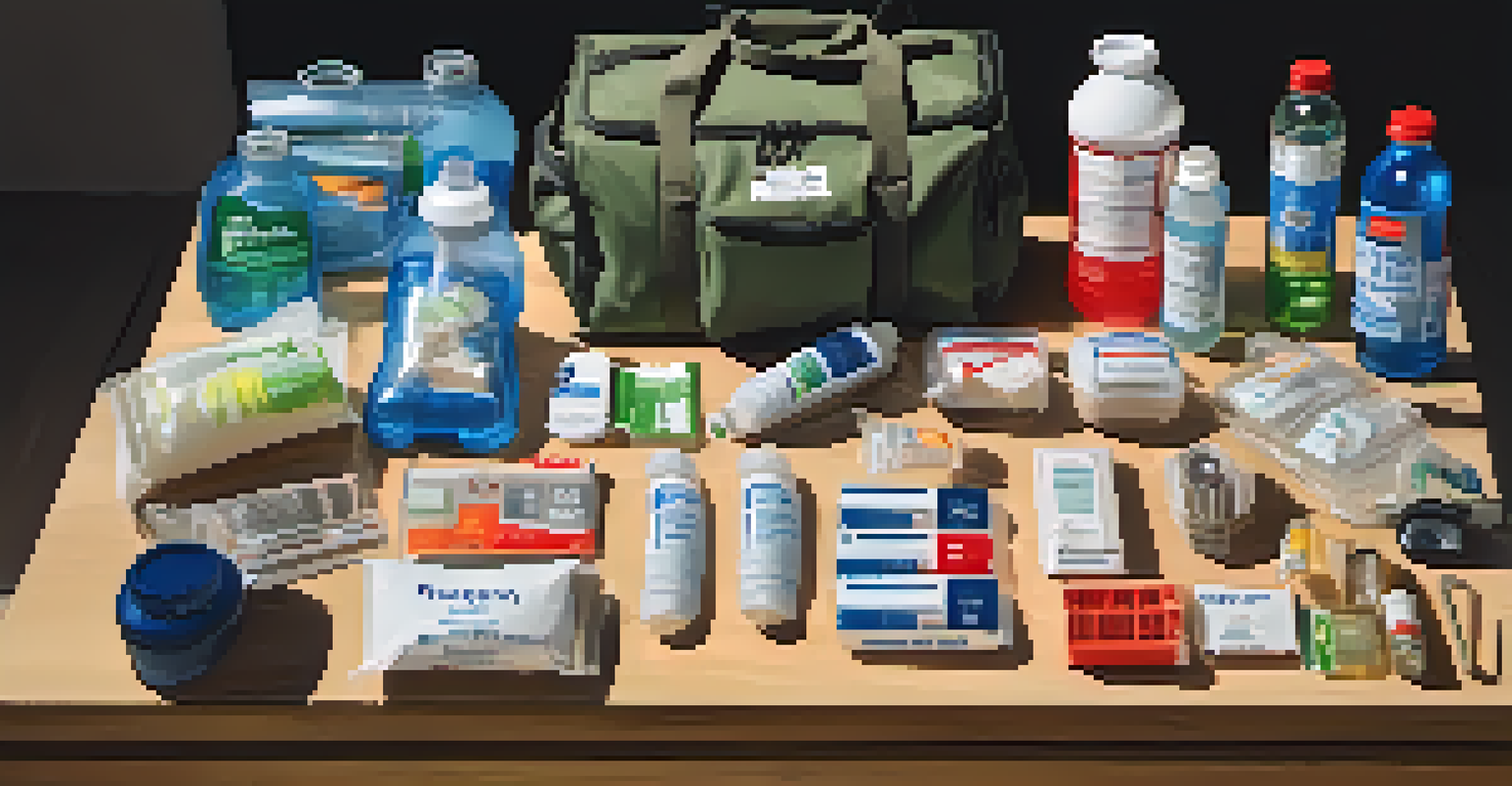Top Tips for Preparing Your Family for Disasters in Pasadena

Understand the Types of Disasters Possible in Pasadena
Pasadena, like many areas in California, is prone to specific natural disasters such as earthquakes, wildfires, and even flooding. Understanding the types of disasters that could occur in your area is the first step in preparing your family. For example, earthquakes can strike without warning, while wildfires often happen during dry seasons and can spread rapidly.
By failing to prepare, you are preparing to fail.
Researching local history and disaster patterns can help you gauge the likelihood of certain events. Joining community forums or attending local emergency preparedness workshops can also provide valuable insights. The more informed you are, the better equipped you'll be to handle an emergency.
By recognizing these potential threats, you can prioritize your planning efforts. This understanding lays the groundwork for your family's disaster preparedness strategy, ensuring everyone knows what to expect.
Create a Family Emergency Plan Together
Having a family emergency plan is crucial for ensuring everyone's safety during a disaster. Gather your family to discuss and outline a plan that includes escape routes, meeting points, and communication methods. This collaborative approach not only strengthens your family's bond but also ensures everyone is on the same page.

Consider different scenarios and how your family will respond. For instance, if an earthquake strikes, designate a safe spot in your home and a meeting place outside. Make sure everyone knows how to reach each other, whether through phone calls or a text message.
Understand Local Disaster Risks
Identifying the types of disasters Pasadena may face helps families prepare effectively.
Regularly review and practice your plan to keep it fresh in everyone's mind. This practice will also help reduce anxiety during an actual emergency, as family members will feel confident in their preparedness.
Build a Comprehensive Emergency Kit
An emergency kit is a must-have for any family. Start by gathering essential items like water, non-perishable food, a flashlight, batteries, a first-aid kit, and important documents. Aim for a kit that can sustain your family for at least 72 hours, as emergencies can sometimes disrupt services for days.
It's not the load that breaks you down, it's the way you carry it.
Don’t forget to customize your kit based on your family's unique needs. For example, if you have young children or pets, include items like baby formula or pet food. Also, consider adding personal hygiene items, games, or comfort items to help ease stress during a crisis.
Regularly check and update your kit to ensure everything is in working order and that food items haven't expired. This proactive approach keeps your family prepared and ready to face any situation.
Stay Informed with Emergency Alerts
In today's digital age, staying informed is easier than ever. Sign up for local emergency alerts to receive real-time updates about potential disasters in Pasadena. This ensures you can act quickly and follow safety protocols when necessary.
Use reliable sources such as the National Weather Service or local emergency management agencies for accurate information. Additionally, consider downloading weather and emergency preparedness apps that can send notifications directly to your smartphone.
Create an Emergency Plan Together
Collaboratively developing a family emergency plan ensures everyone knows their roles during a crisis.
Being informed can significantly reduce panic during an emergency, allowing your family to make clear, calm decisions. Knowing what's happening around you gives you the power to respond appropriately and keep everyone safe.
Practice Drills to Reinforce Preparedness
Practicing emergency drills is an excellent way to ensure your family knows what to do in a crisis. Schedule regular drills that mimic various disaster scenarios, such as fire evacuations or earthquake safety. This hands-on approach reinforces your emergency plan and helps everyone remember their roles.
Keep the drills fun and engaging, especially for young children. Use games or role-playing to make the experience enjoyable while still educational. This not only helps reduce anxiety but also empowers kids to take an active role in their safety.
By incorporating practice into your routine, you’ll strengthen your family's preparedness and build confidence. Regular drills keep your emergency plan alive and relevant, making it easier to respond effectively when it matters most.
Stay Connected with Your Community
Community support can be invaluable during a disaster. Familiarize yourself with local emergency services, organizations, and resources available in Pasadena. Building relationships with neighbors creates a support network that can be beneficial during emergencies.
Engage with community preparedness programs, such as CERT (Community Emergency Response Team), which offers training on disaster response. Participating in these initiatives not only enhances your skills but also fosters a sense of togetherness in your neighborhood.
Build and Update Your Emergency Kit
Having a comprehensive and regularly updated emergency kit is essential for surviving any disaster.
Having a solid community connection means you can share resources, information, and assistance during a crisis. In times of need, a strong community can make all the difference in ensuring everyone's safety.
Review and Adjust Your Preparedness Regularly
Disaster preparedness is not a one-time task; it requires ongoing evaluation and adjustment. Regularly review your family's emergency plan and kit to ensure they are up-to-date and effective. Changes in family dynamics, such as new members or pets, may necessitate updates to your plan.
Additionally, stay informed about new risks or safety protocols in Pasadena, as these may change over time. For instance, if new evacuation routes are established or new types of emergencies are identified, your plan should reflect these updates.

By regularly revisiting your preparedness strategies, you keep your family ready for whatever may come their way. This proactive approach not only enhances safety but also instills confidence in your family's ability to handle emergencies.